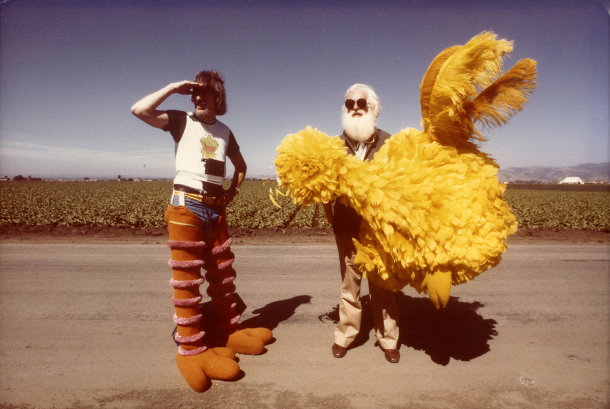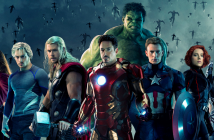Fish & Cat (2013)
Cast: Abed Abest, Mona Ahmadi, Ainaz Azarhoush
Director: Shahram Mokri
Country: Iran
Genre: Drama
Editor’s Notes: The following review is apart of our coverage of the Transilvania International Film Festival. For more information visit http://tiff.ro/en and follow TIFF Romania on Twitter at @tiffromania.
Time and motion: the bare elements of the cinematic image. D.W. Griffith’s formalisation of the grammar of film editing when the medium was yet in its infancy effected an understanding between spectator and screen of the space between, the time and the motion we do not see in the space of a cut: the filmic equivalent, as it were, of reading between the lines. With Fish & Cat, Iranian director Shahram Mokri has poured the bathwater down the drain with less concern for the baby than us, the overzealous parents who have been conditioned to look at the world in only one way. In this striking single-take feature, Mokri has posed a challenge to the way we watch films, and through them the way we watch the world.
Fish & Cat is a synthesis of that we know and that we’re afraid to, a movie whose hand, when played, is frightening for the recognisable aspects it radically reconstitutes.
Even the most skilful edit, of course, is the breach of the illusion of cinema’s reality: it was to deprive the breathing room the cut permits that Hitchcock shot Rope in such extended, technology-testing takes, half his edits hidden. Digital cinema has seen his ambition fulfilled, if rarely at feature length; it’s only PVC-1, perhaps—we may also argue The Silent House—that’s exploited the opportunities of uncut tension to the end he imagined. More often, films like Russian Ark and Timecode—and to a lesser extent Tarr’s TV Macbeth—have seen feature-length takes as the gateway to a treatise on perspective, at the confluence of historicity and humanity. Here is a curious comingling of both: a tension-fraught genre exercise that uses its technical trappings as a route to radical reconsideration of the camera’s capabilities.
 It’s with a decadent irony that Mokri opens the movie on text invoking the discovery in Iran of a restaurant serving human flesh; co-opting the tropes of the slasher film, he sets our expectations at odds with us from the start, exploiting the assumptions that arise when the film proper opens on a car full of teens stopping at a rundown rural restaurant to ask for directions. But like the moment where the stark score—all atonal strings and garish groans—fuses peculiarly with the familiar classical music filtered through the earphones of one of the peculiar pair, Fish & Cat is a synthesis of that we know and that we’re afraid to, a movie whose hand, when played, is frightening for the recognisable aspects it radically reconstitutes.
It’s with a decadent irony that Mokri opens the movie on text invoking the discovery in Iran of a restaurant serving human flesh; co-opting the tropes of the slasher film, he sets our expectations at odds with us from the start, exploiting the assumptions that arise when the film proper opens on a car full of teens stopping at a rundown rural restaurant to ask for directions. But like the moment where the stark score—all atonal strings and garish groans—fuses peculiarly with the familiar classical music filtered through the earphones of one of the peculiar pair, Fish & Cat is a synthesis of that we know and that we’re afraid to, a movie whose hand, when played, is frightening for the recognisable aspects it radically reconstitutes.
Mahmoud Kalari, the DP who’s worked with the best in Iranian film talent, traces the interlinking paths of Mokri’s characters with uncanny grace, his camera navigating the sprawling lakeside setting and establishing space in understated efficacy. And, of course, time with it, to such successful extent that when a character repeats an earlier line verbatim we think of nothing but blaming our own minds. As the film folds in on itself, encounter after encounter repeated anew, the disquieting effect of a disconnect between time and motion takes hold, and a century’s worth of cinematic language is all of a sudden given a new grammar. Puzzle film fans will delight in trying to detangle this Möbius strip of a movie, but it’s the perspectival dialogue the self-immolating shot sets in motion that really makes of this a picture worth getting excited about.
Puzzle film fans will delight in trying to detangle this Möbius strip of a movie…
Such a shame, then, that a film which teases new frontiers can fall prey to problems a hundred years old: it was with a sly admission of being caught in a corner that Mokri quipped cutting the film to suit Iran’s infamously strict censorship was impossible; so too it is to trim the swathes of speech that push the movie past the point of optimum efficiency. Acting and ADR, of course, are appreciable issues given the labyrinthine logistics at work, and while Mokri’s majestic spell glosses over the trivial technical hiccups, it’s hard not to feel for the fluidity that might have been. As an experiment in digital potentiality, Fish & Cat is an essential piece of work. As an idea put into practice, it’s a tantalising tease for what the future holds.
As an experiment in digital potentiality, Fish & Cat is an essential piece of work. As an idea put into practice, it’s a tantalising tease for what the future holds.



